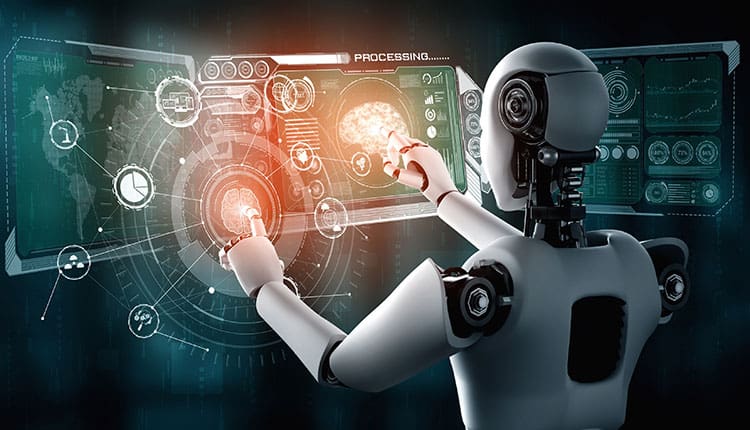
Artificial Intelligence Technology: Revolutionizing Industries and Shaping the Future
Introduction
In recent years, Artificial Intelligence (AI) technology has taken the world by storm, transforming industries and shaping the future of many sectors. AI technology has become an essential tool in enhancing efficiency, reducing costs, and driving innovation in various sectors. In this article, we will explore the basics of Artificial Intelligence technology, its current applications in different industries, and its potential impact on the future of work and society.
What is Artificial Intelligence?
Artificial Intelligence (AI) is a broad term used to describe computer systems that can perform tasks that usually require human intelligence, such as learning, problem-solving, and decision-making. AI technology can be classified into two main categories: narrow or weak AI and general or strong AI. Narrow AI is programmed to perform specific tasks, such as image or speech recognition, while general AI can perform any intellectual task that a human can do.
Applications of AI in Various Industries
AI technology kings has already found its way into many industries, from healthcare to finance and manufacturing. Let’s take a closer look at some of the industries where AI is making a significant impact.
Healthcare
AI technology is revolutionizing healthcare, from diagnosis to treatment and patient care. AI-powered systems can analyze vast amounts of data, including medical records and imaging results, to provide accurate diagnoses and treatment plans. Moreover, AI technology can help physicians identify patients at risk of developing chronic conditions and provide personalized care.
Finance
In the finance sector, AI technology is used to improve fraud detection, risk management, and customer service. AI-powered chatbots can provide customers with 24/7 assistance and personalized recommendations. AI algorithms can also analyze data to identify fraudulent activities and prevent financial crimes.
Manufacturing
AI technology is transforming the manufacturing industry, from streamlining production processes to improving product quality. AI-powered robots can perform repetitive and dangerous tasks, reducing the risk of workplace injuries. Additionally, AI algorithms can analyze production data to identify areas for optimization and reduce waste.
Transportation
AI technology is also making waves in the transportation sector, with the development of self-driving cars and trucks. Self-driving vehicles have the potential to reduce accidents, traffic congestion, and transportation costs. Moreover, AI-powered traffic management systems can optimize routes and reduce travel time.
Impact of AI on the Future of Work and Society
As AI technology continues to advance, it will have a significant impact on the future of work and society. While AI has the potential to enhance efficiency and productivity, it could also lead to job displacement in some industries. Moreover, the use of AI in decision-making processes could raise ethical and legal concerns. It is crucial to develop policies and regulations that ensure the responsible use of AI technology.
Conclusion
In conclusion, AI technology is revolutionizing industries and shaping the future of work and society. With its ability to perform complex tasks and analyze vast amounts of data, AI technology has become an essential tool in many sectors, from healthcare to finance and transportation. As AI technology continues to advance, it is crucial to develop policies and regulations that ensure its responsible use and mitigate its potential negative impacts.

